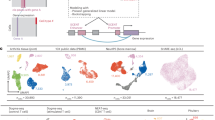Abstract
It has been suggested that pharmacogenomic phenotypes are influenced by genetic variants with larger effect sizes than other phenotypes, such as complex disease risk. This is presumed to reflect the fact that relevant environmental factors (drug exposure) are appropriately measured and taken into account. To test this hypothesis, we performed a systematic comparison of effect sizes between pharmacogenomic and non-pharmacogenomic phenotypes across all genome-wide association studies (GWAS) reported in the NHGRI GWAS catalog. We found significantly larger effect sizes for studies focused on pharmacogenomic phenotypes, as compared with complex disease risk, morphological phenotypes and endophenotypes. We found no significant differences in effect sizes between pharmacogenomic studies focused on adverse events versus those focused on drug efficacy. Furthermore, we found that this pattern persists among sample size-matched studies, suggesting that this pattern does not reflect overestimation of effect sizes due to smaller sample sizes in pharmacogenomic studies.
This is a preview of subscription content, access via your institution
Access options
Subscribe to this journal
Receive 6 print issues and online access
$259.00 per year
only $43.17 per issue
Buy this article
- Purchase on Springer Link
- Instant access to full article PDF
Prices may be subject to local taxes which are calculated during checkout




Similar content being viewed by others
References
Welter D, MacArthur J, Morales J, Burdett T, Hall P, Junkins H et al. The NHGRI GWAS Catalog, a curated resource of SNP-trait associations. Nucleic Acids Res 2014; 42: D1001–D1006.
Manolio TA, Collins FS, Cox NJ, Goldstein DB, Hindorff LA, Hunter DJ et al. Finding the missing heritability of complex diseases. Nature 2009; 461: 747–753.
Yang J, Benyamin B, McEvoy BP, Gordon S, Henders AK, Nyholt DR et al. Common SNPs explain a large proportion of the heritability for human height. Nat Genet 2010; 42: 565–569.
Yang J, Lee T, Kim J, Cho MC, Han BG, Lee JY et al. Ubiquitous polygenicity of human complex traits: genome-wide analysis of 49 traits in Koreans. PLoS Genet 2013; 9: e1003355.
Vinkhuyzen AA, Wray NR, Yang J, Goddard ME, Visscher PM . Estimation and partition of heritability in human populations using whole-genome analysis methods. Annu Rev Genet 2013; 47: 75–95.
Evans DM, Visscher PM, Wray NR . Harnessing the information contained within genome-wide association studies to improve individual prediction of complex disease risk. Hum Mol Genet 2009; 18: 3525–3531.
Jostins L, Barrett JC . Genetic risk prediction in complex disease. Hum Mol Genet 2011; 20: R182–R188.
Dudbridge F . Power and predictive accuracy of polygenic risk scores. PLoS Genet 2013; 9: e1003348.
Roden DM, Wilke RA, Kroemer HK, Stein CM . Pharmacogenomics: the genetics of variable drug responses. Circulation 2011; 123: 1661–1670.
Caudle KE, Klein TE, Hoffman JM, Muller DJ, Whirl-Carrillo M, Gong L et al. Incorporation of pharmacogenomics into routine clinical practice: the Clinical Pharmacogenetics Implementation Consortium (CPIC) guideline development process. Curr Drug Metab 2014; 15: 209–217.
Somkrua R, Eickman EE, Saokaew S, Lohitnavy M, Chaiyakunapruk N . Association of HLA-B*5801 allele and allopurinol-induced Stevens Johnson syndrome and toxic epidermal necrolysis: a systematic review and meta-analysis. BMC Med Genet 2011; 12: 118.
Daly AK . Genome-wide association studies in pharmacogenomics. Nat Rev Genet 2010; 11: 241–246.
Ritchie MD . The success of pharmacogenomics in moving genetic association studies from bench to bedside: study design and implementation of precision medicine in the post-GWAS era. Hum Genet 2012; 131: 1615–1626.
Giacomini KM, Yee SW, Ratain MJ, Weinshilboum RM, Kamatani N, Nakamura Y . Pharmacogenomics and patient care: one size does not fit all. Sci Transl Med 2012; 4: 153ps118.
Chhibber A, Kroetz DL, Tantisira KG, McGeachie M, Cheng C, Plenge R et al. Genomic architecture of pharmacological efficacy and adverse events. Pharmacogenomics 15: 2025–2048.
Hindorff LA, Junkins HA, Hall PN, Mehta JP, Manolio TA . A Catalog of Published Genome-Wide Association Studies. 2011, Available from www.genome.gov/gwastudies.
Berndt SI, Gustafsson S, Magi R, Ganna A, Wheeler E, Feitosa MF et al. Genome-wide meta-analysis identifies 11 new loci for anthropometric traits and provides insights into genetic architecture. Nat Genet 45: 501–512.
Gibson G . Rare and common variants: twenty arguments. Nat Rev Genet 2011; 13: 135–145.
Manolio TA . Bringing genome-wide association findings into clinical use. Nat Rev Genet 2013; 14: 549–558.
Link E, Parish S, Armitage J, Bowman L, Heath S, Matsuda F et al. SLCO1B1 variants and statin-induced myopathy—a genomewide study. N Engl J Med 2008; 359: 789–799.
Suppiah V, Moldovan M, Ahlenstiel G, Berg T, Weltman M, Abate ML et al. IL28B is associated with response to chronic hepatitis C interferon-alpha and ribavirin therapy. Nat Genet 2009; 41: 1100–1104.
Thompson EE, Kuttab-Boulos H, Witonsky D, Yang L, Roe BA, Di Rienzo A . CYP3A variation and the evolution of salt-sensitivity variants. Am J Hum Genet 2004; 75: 1059–1069.
Di Rienzo A . Population genetics models of common diseases. Curr Opin Genet Dev 2006; 16: 630–636.
Acknowledgements
JCM was supported by a Clinical Therapeutics training grant to the University of Chicago (T32GM007019). The funders had no role in study design, data collection and analysis, decision to publish or preparation of the manuscript.
Author information
Authors and Affiliations
Corresponding author
Ethics declarations
Competing interests
The authors declare no conflict of interest.
Additional information
Supplementary Information accompanies the paper on the The Pharmacogenomics Journal website
Supplementary information
Rights and permissions
About this article
Cite this article
Maranville, J., Cox, N. Pharmacogenomic variants have larger effect sizes than genetic variants associated with other dichotomous complex traits. Pharmacogenomics J 16, 388–392 (2016). https://doi.org/10.1038/tpj.2015.47
Received:
Revised:
Accepted:
Published:
Issue Date:
DOI: https://doi.org/10.1038/tpj.2015.47
This article is cited by
-
Pharmacogenomics: current status and future perspectives
Nature Reviews Genetics (2023)
-
Germline modifiers of the tumor immune microenvironment implicate drivers of cancer risk and immunotherapy response
Nature Communications (2023)
-
Polygenic risk of paclitaxel-induced peripheral neuropathy: a genome-wide association study
Journal of Translational Medicine (2022)
-
Pharmacogenomics polygenic risk score for drug response prediction using PRS-PGx methods
Nature Communications (2022)
-
Germline genetic variation and predicting immune checkpoint inhibitor induced toxicity
npj Genomic Medicine (2022)



